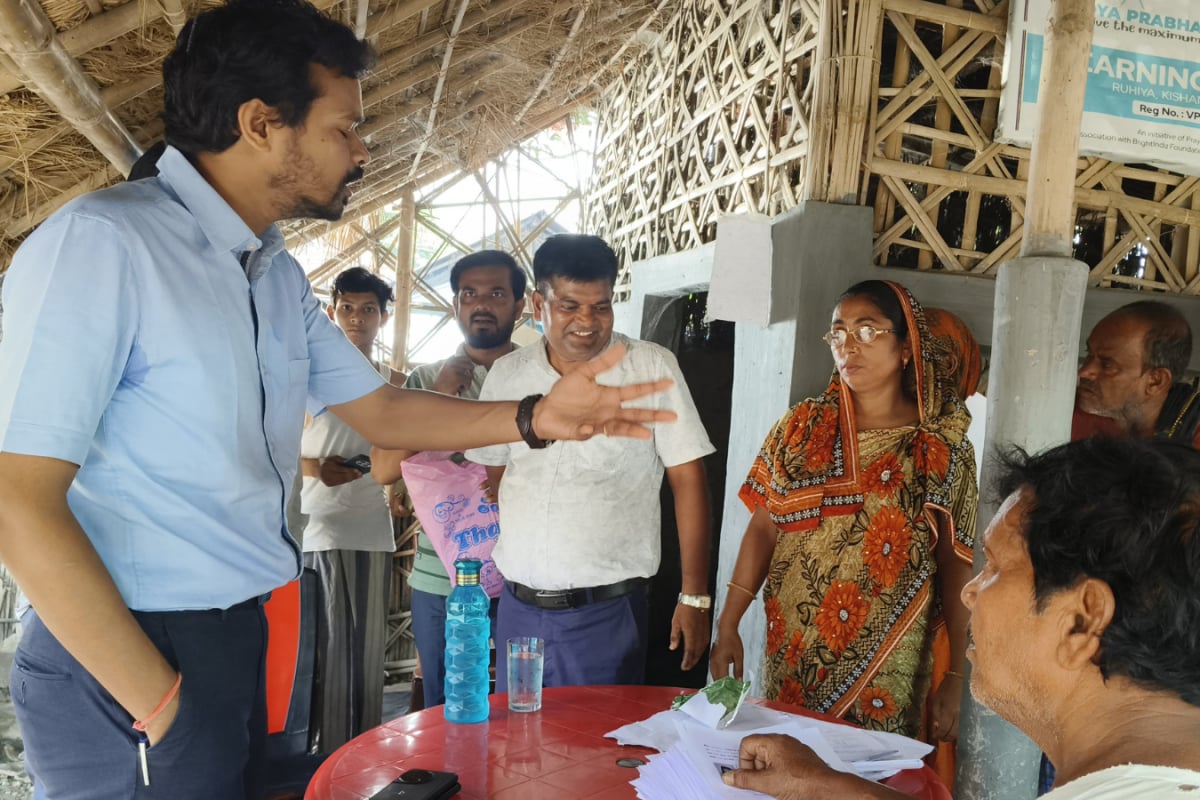

The state of Bihar is facing scrutiny over potential irregularities in its voter list, sparking concerns about the possible infiltration of Rohingya refugees and illegal immigrants. These concerns stem from a perceived increase in the number of residence certificate applications, particularly in regions bordering Bangladesh. The issue has quickly become a political flashpoint, with accusations and counter-accusations traded between different parties.
The Election Commission of India (ECI) has initiated a Special Intensive Revision (SIR) of electoral rolls in Bihar, aiming to remove ineligible names, including deceased voters and alleged illegal immigrants, to ensure that only genuine citizens are on the rolls. The ECI has cited rapid urbanization, high migration, and under-reporting of deaths as factors necessitating this revision. However, the timing of this revision, just weeks before the likely notification of assembly elections, has drawn criticism.
Opposition parties have alleged that the ECI is acting at the behest of the ruling Bharatiya Janata Party (BJP), while the BJP defends the revision as a routine activity. Critics argue that the rushed nature of the revision could disenfranchise genuine voters, especially those lacking proper documentation. AIMIM chief Asaduddin Owaisi has warned that the deletion of names could strip thousands of people of their citizenship rights, livelihood, and access to welfare benefits. He also raised concerns about the lack of proper training for Booth Level Officers (BLOs) tasked with carrying out the revision.
The BJP has accused the opposition of supporting illegal Bangladeshis and Rohingyas to create vote banks. BJP leaders have asserted that individuals opposing the voter list revision are effectively supporting illegal immigrants. They claim that the opposition is creating unnecessary chaos and drama for political gain.
Concerns about Rohingya refugees obtaining Indian identity documents are not new. The Union government has previously informed the Supreme Court that illegal Rohingya Muslim migrants do not have a fundamental right to reside and settle in India. The government has also stated that the continued illegal migration of Rohingyas poses serious security risks, with reports suggesting their involvement in obtaining fake documents, human trafficking, and subversive activities.
The process of obtaining residence certificates in Bihar involves application at the circle/block level, with options for online application or through designated Public Service Centers. Applicants typically need to provide identity proof and other relevant documents. Concerns arise when individuals obtain these certificates fraudulently. In one instance, five individuals from Uttar Pradesh and Bihar were arrested in Tripura for allegedly using fake Permanent Resident Certificates (PRCs) to secure jobs.
The current situation is further complicated by the Citizenship Amendment Act (CAA) 2019, which expedites Indian citizenship for persecuted religious minorities from Pakistan, Bangladesh, and Afghanistan, excluding Muslims. This exclusion exacerbates the vulnerability of Rohingya Muslims in India, increasing their risk of arbitrary detention.
The ECI's decision to conduct a Special Intensive Revision has sparked controversy and raised questions about the potential for both genuine citizens and undocumented immigrants to be affected. Accusations of political motivation and concerns about disenfranchisement have further fueled the debate. As the revision process moves forward, ensuring fairness, transparency, and adherence to due process will be critical to maintaining the integrity of the electoral rolls and upholding the rights of all residents in Bihar.